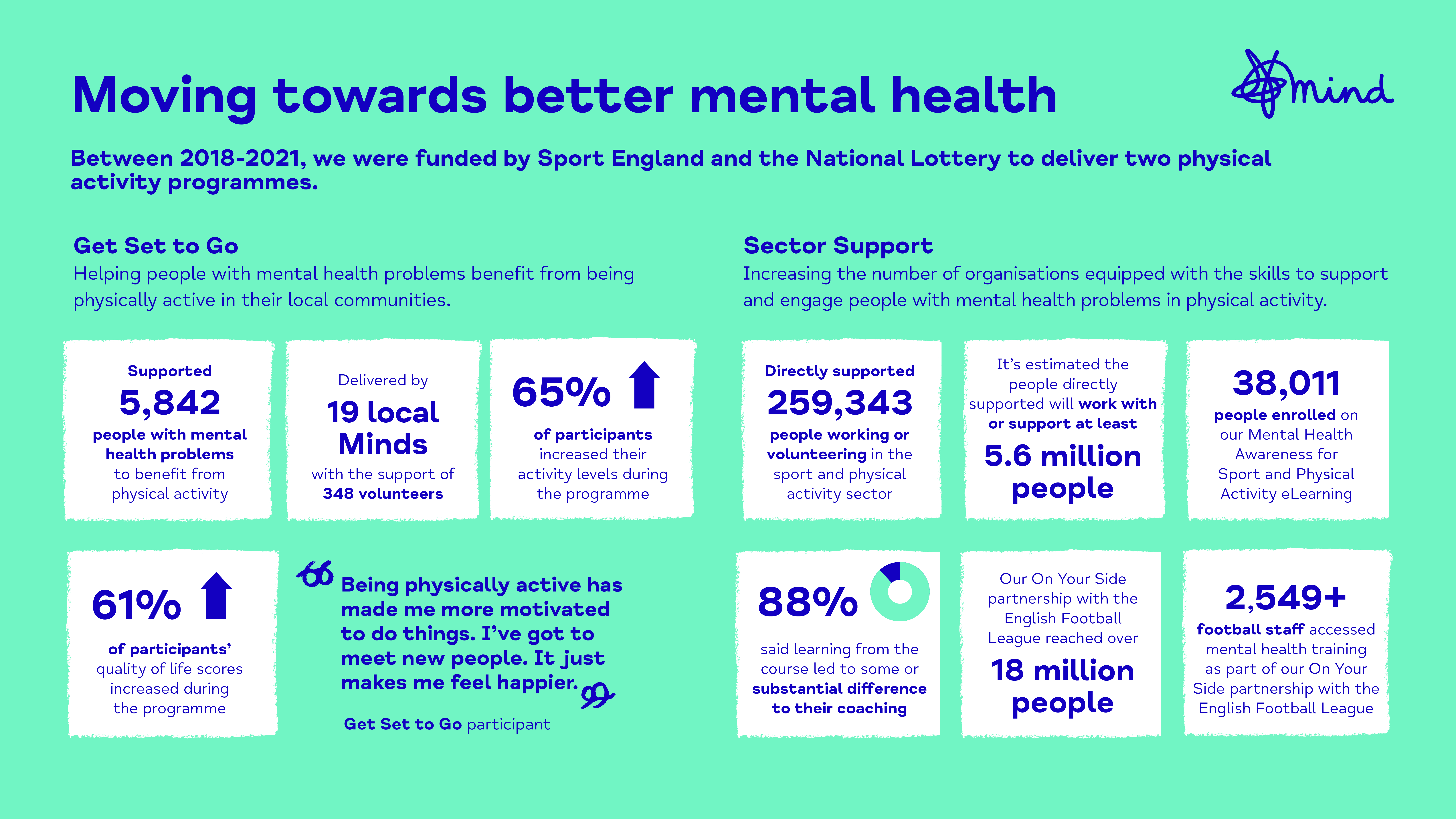Investing In Childhood: A Crucial Step Towards Better Mental Health

Table of Contents
The Importance of Early Childhood Development for Mental Health
The first few years of life are a period of explosive brain growth and development. This period profoundly shapes a child’s emotional, social, and cognitive capabilities, directly impacting their future mental health. Investing in early childhood development is, therefore, a crucial investment in their future well-being.
Nurturing Secure Attachment
Secure attachment, the strong emotional bond between a child and their primary caregiver, plays a pivotal role in a child's development and future mental health. Children with secure attachments tend to develop better emotional regulation, resilience, and social skills.
- Benefits of secure attachment: Increased self-esteem, better social relationships, improved emotional regulation, reduced anxiety and depression.
- Signs of insecure attachment: Anxiety, clinginess, avoidance, difficulty forming relationships.
- Strategies for parents to foster secure attachment:
- Responsive parenting: Responding promptly and sensitively to a child's needs.
- Consistent care: Providing reliable and predictable care, creating a sense of security.
- Positive interaction: Engaging in playful and loving interactions.
Keywords: Secure attachment, responsive parenting, early childhood development, emotional regulation.
The Impact of Nutritious Food and Physical Activity
Proper nutrition and regular physical activity are not just crucial for physical health; they are integral components of a child's brain development and overall well-being. A healthy diet and active lifestyle contribute to better cognitive function, improved mood, and reduced risk of mental health issues like anxiety and depression.
- Nutritional needs of children: A balanced diet rich in fruits, vegetables, whole grains, and lean protein.
- Benefits of regular exercise: Improved mood, stress reduction, better sleep, increased self-esteem.
- The link between physical health and mental health: Studies show a strong correlation between physical activity and improved mental well-being.
- Resources for parents to promote healthy habits: Consult a pediatrician or registered dietitian for personalized advice.
Keywords: Healthy diet, physical activity, childhood obesity, brain development, nutrition for mental health.
Creating Supportive Environments for Children's Mental Health
Beyond individual care, creating supportive environments is essential for fostering children's mental well-being. This involves access to quality education, positive relationships, and early intervention when needed.
The Role of Education and Early Intervention
Early childhood education and intervention programs play a vital role in identifying and addressing potential mental health concerns early on. Early intervention can significantly improve outcomes and prevent more serious problems later in life.
- Benefits of early childhood education: Enhanced cognitive development, improved social skills, reduced risk of future mental health problems.
- Early intervention programs for mental health: These programs provide specialized support for children with developmental delays or mental health challenges.
- Identifying signs of mental health problems in children: Changes in behavior, mood, sleep, or appetite.
- Resources for parents and educators: Consult with your child's pediatrician or a mental health professional.
Keywords: Early childhood education, early intervention, mental health screenings, child development programs.
The Importance of Positive Relationships and Social Support
Positive relationships with parents, family members, and peers are crucial for building resilience and promoting mental well-being in children. These relationships provide a sense of belonging, security, and support, helping children navigate challenges and develop healthy coping mechanisms.
- The impact of positive relationships: Increased self-esteem, improved emotional regulation, better social skills, and stronger resilience.
- Building strong family connections: Spending quality time together, engaging in shared activities, and open communication.
- Fostering peer relationships: Encouraging positive interactions with peers, teaching conflict resolution skills, and addressing bullying.
- Recognizing and addressing bullying: Creating a safe and supportive environment, educating children about bullying, and providing support to victims.
Keywords: Social support, peer relationships, family support, resilience, bullying prevention.
Practical Steps for Investing in a Child's Mental Health
Investing in a child's mental health is an ongoing process that requires proactive steps from parents, caregivers, educators, and the community.
Seeking Professional Help When Needed
It's crucial to seek professional help if a child is experiencing significant mental health challenges. Early intervention can prevent problems from worsening and improve long-term outcomes.
- Signs that professional help is needed: Persistent sadness, anxiety, changes in behavior, difficulty functioning at school or home, self-harm.
- Types of mental health professionals for children: Child psychologists, child psychiatrists, therapists, social workers.
- Finding resources for mental health services: Contact your child's pediatrician, search online for mental health resources in your area, or contact your insurance provider.
Keywords: Child psychologist, child psychiatrist, mental health services, therapy for children, seeking professional help.
Promoting Mental Wellness Through Activities and Hobbies
Engaging children in activities that promote mental well-being, such as creative expression, mindfulness, and physical activity, can significantly contribute to their overall health and happiness.
- Benefits of creative activities: Stress reduction, self-expression, improved emotional regulation.
- Mindfulness exercises for children: Simple meditation techniques, deep breathing exercises, focusing on the present moment.
- Engaging children in sports and hobbies: Provides opportunities for social interaction, physical activity, and skill development.
- Screen time management: Limiting screen time and encouraging alternative activities.
Keywords: Mindfulness, creative expression, stress reduction techniques, children's activities, healthy hobbies.
Conclusion
Investing in childhood is not merely an act of generosity; it's a strategic investment in a healthier, more resilient future. By prioritizing early childhood development, fostering supportive environments, and actively promoting children's mental well-being, we build a foundation for a generation with stronger mental health. Through responsive parenting, healthy lifestyles, access to quality education, and seeking professional help when needed, we can collectively make a profound difference in the lives of children. By actively investing in childhood, we pave the way for a healthier, happier, and more resilient future generation. Start investing in childhood today!

Featured Posts
-
 I Diavrosi Toy Kratoys Meso Tis Poleodomikis Diafthoras Kai I Anagkaia Metarrythmisi
May 03, 2025
I Diavrosi Toy Kratoys Meso Tis Poleodomikis Diafthoras Kai I Anagkaia Metarrythmisi
May 03, 2025 -
 Mathieu Spinosi Et Son Violon Une Matinale Exceptionnelle
May 03, 2025
Mathieu Spinosi Et Son Violon Une Matinale Exceptionnelle
May 03, 2025 -
 Daily Lotto Results Wednesday April 16 2025
May 03, 2025
Daily Lotto Results Wednesday April 16 2025
May 03, 2025 -
 Nebraska Voter Id Campaign Receives National Recognition For Excellence
May 03, 2025
Nebraska Voter Id Campaign Receives National Recognition For Excellence
May 03, 2025 -
 The Impact Of Saudi Arabias New Abs Market Regulations
May 03, 2025
The Impact Of Saudi Arabias New Abs Market Regulations
May 03, 2025
